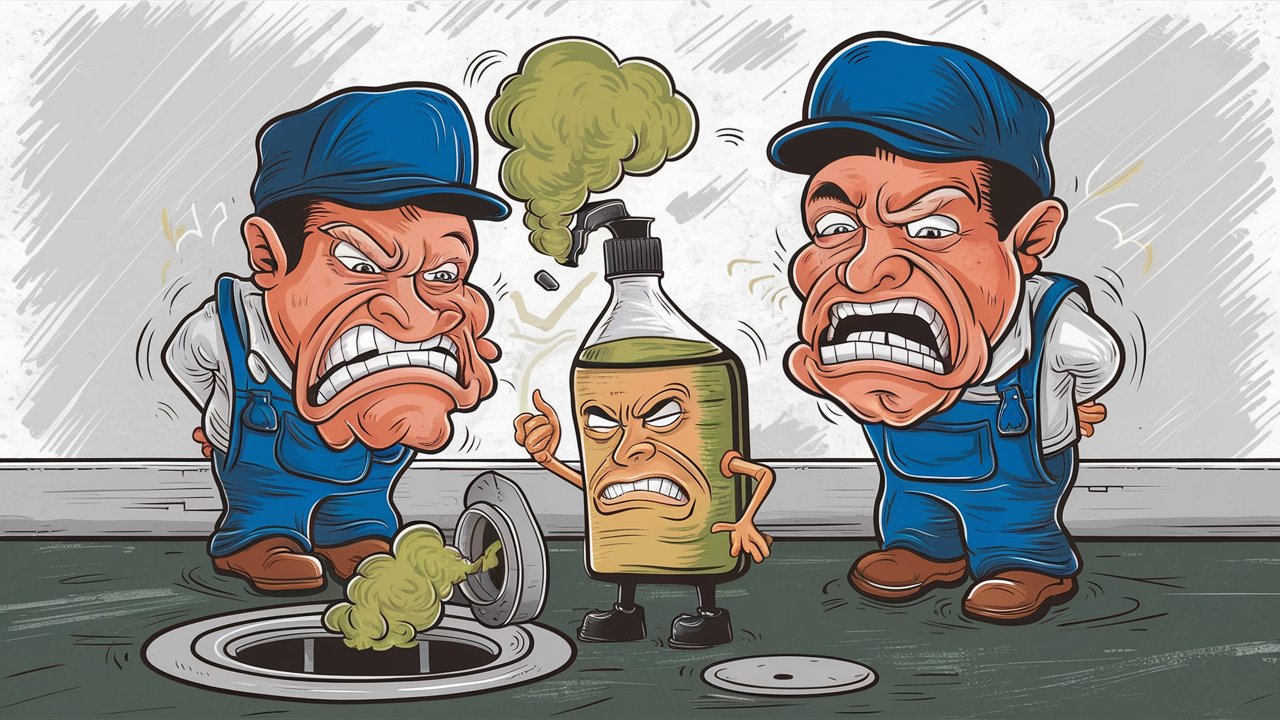Drano is a popular drain cleaner known for its ability to clear clogged drains quickly. However, many plumbers strongly advise against using Drano and similar chemical drain cleaners. This recommendation stems from concerns over safety, potential damage to plumbing systems, and environmental impact. Plumbers understand that while Drano may offer a short-term solution, it often creates more problems than it solves. This article explores the key reasons why Drano is frowned upon by professionals in the field.
Why Do Plumbers Say Not To Use Drano?
Plumbers typically discourage the use of Drano due to its potential to cause long-term damage and its ineffectiveness in addressing the root causes of clogs. Drano’s chemical composition is designed to dissolve clogs, but it often fails to fully clear the obstruction or address underlying issues such as pipe damage or improper drainage. Moreover, Drano’s use can lead to severe complications during subsequent professional repairs, making it a less favorable choice for plumbing maintenance.
1. Drano Can Cause Skin Burns
One of the significant risks associated with Drano is the potential for severe skin burns. The harsh chemicals in Drano, such as sodium hydroxide, can cause painful burns if they come into contact with the skin. This risk is not limited to homeowners; plumbers also face this danger when they are called to fix clogs caused by Drano. Often, homeowners use Drano to attempt to clear a clog and may not inform the plumber of its use. When plumbers arrive and handle the residue left by Drano, they can suffer from chemical burns. This creates an additional safety concern and highlights why Drano is problematic for both DIYers and professionals.
2. Drano Can Hurt Your Plumbing System
Drano’s chemical properties can also be damaging to your plumbing system. The strong acids and bases in Drano can cause corrosion, especially in older pipes or those made from materials like PVC. Over time, this corrosion can weaken pipes, leading to leaks or even ruptures. The heat generated by the chemical reactions can further exacerbate pipe damage, making it more likely that you’ll need costly repairs or replacements down the line.
3. Drain Cleaners Like Drano Are Bad For The Environment
Environmental concerns are another major reason why plumbers are wary of Drano. The chemicals in drain cleaners like Drano can be harmful to the environment. When these substances are flushed down the drain, they eventually make their way to natural water sources, where they can disrupt aquatic ecosystems. The impact on wildlife and plant life can be significant, contributing to water pollution and harming local flora and fauna. Using environmentally-friendly alternatives helps reduce this negative impact.
4. Drano is A Temporary Solution
While Drano might provide a quick fix for a clogged drain, it is only a temporary solution. Drano dissolves the immediate blockage but does not address underlying issues such as pipe misalignment, deep-seated obstructions, or structural problems. As a result, clogs often recur, leading to repeated use of Drano or additional plumbing problems. A more effective approach involves addressing the root cause of the clog rather than relying on temporary fixes that fail to provide a long-term solution.
Follow These Methods To Fix Drain Clogs Instead
For a safer and more effective approach to managing drain clogs, consider using alternative methods that are less harmful to your plumbing system and the environment. Here are some recommended techniques for clearing clogs and maintaining your drains:
- Plungers:
- Drain Snakes:
- Baking Soda and Vinegar:
Plungers are a traditional and reliable tool for clearing minor clogs. By creating a vacuum seal over the drain, plungers can help dislodge blockages and restore normal water flow.
Drain snakes, or augers, are versatile tools designed to reach deep into pipes and remove stubborn clogs. They can be especially useful for clearing blockages that a plunger cannot handle.
For a natural alternative to chemical drain cleaners, try using a combination of baking soda and vinegar. This method involves pouring baking soda followed by vinegar into the drain. The fizzing action helps to break down minor clogs and clean the pipes without harsh chemicals.


